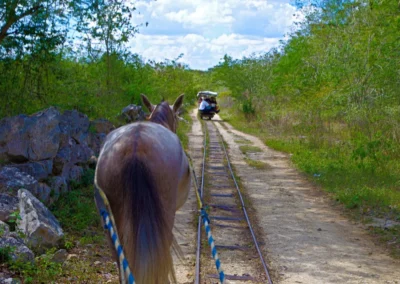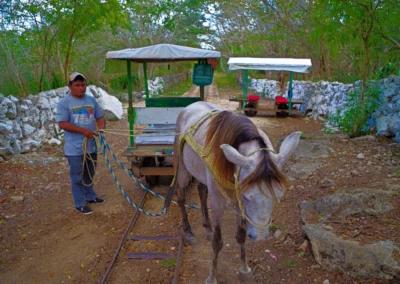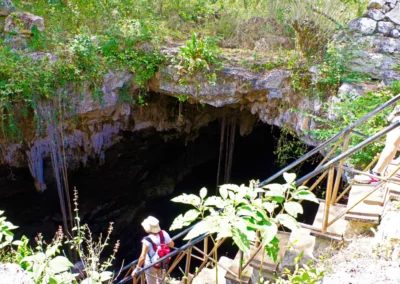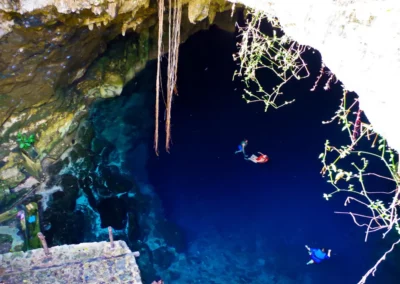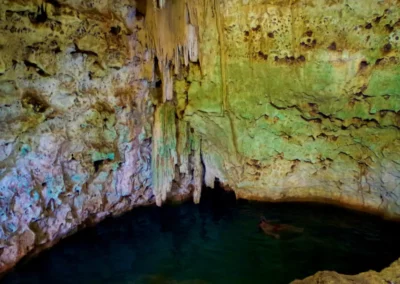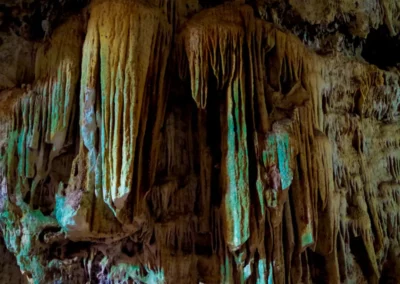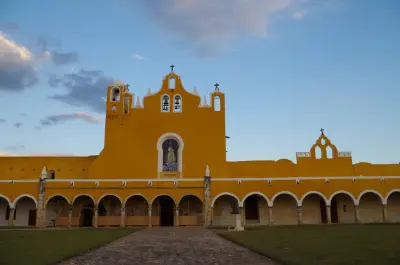Cenotes Chunkanan

Welcome to Chunkanan Cenotes
💧 The Chunkanán cenotes: underground journey at the pace of the horse
📍 Where are they located ?
- These cenotes are located near the village of Chunkanán, in the region of Cuzamá, at about 50 km southeast of Mérida, in the heart of the Yucatán Peninsula.
- They are nestled in a peaceful rainforest, accessible by a secondary road which seems to lead out of time.
🚃 Unique access: the “truck”
- To reach the cenotes, we board a "truck", a small wooden platform mounted on rails and pulled by a horse.
- This rustic means of transport follows the old railway lines henequén plantations, offering a scenic walk through the jungle.
- The slow rhythm of the horse, the screeching of the wheels on the rails, and the singing of the birds create an atmosphere sensory and immersive.
🌌 The Three Underground Jewels
🌀 Chelentún
- Cenote semi-open, surrounded by lush vegetation.
- The water is clear and shallow, perfect for a refreshing swim.
- The hanging roots descend into the water, creating an almost mystical natural setting.
🌿 Chacsinicché
- Cenote in a cave, with a ceiling opening letting in a beam of light.
- The water is deeper, an intense blue, ideal for the snorkeling.
- The atmosphere is silent and sacred, like a natural sanctuary.
🌊 Bolonchoojol
- Cenote entirely underground, accessible by a wooden ladder.
- The cavity is spacious, decorated with stalactites and stalagmites, with fresh, clear water.
- This is the most impressive of the three, perfect for a total immersion in the underground world.
🧘♂️ Why Chunkanán is special
- It's an experience authentic and off the beaten track, far from the more frequented tourist cenotes.
- The truck ride, jungle, caves and crystal clear waters offer a deep connection with nature and local history.
- We feel a rare peace, as if time had stopped to make way for what is essential.
Continue to Izamal
Nestled in the Yucatan Peninsula, Izamal is a Mexican town that attracts visitors with its Spanish colonial architecture and Mayan ruins. The town is famous for its bright yellow buildings, including the 16th-century Franciscan Convent of San Antonio de Padua.

